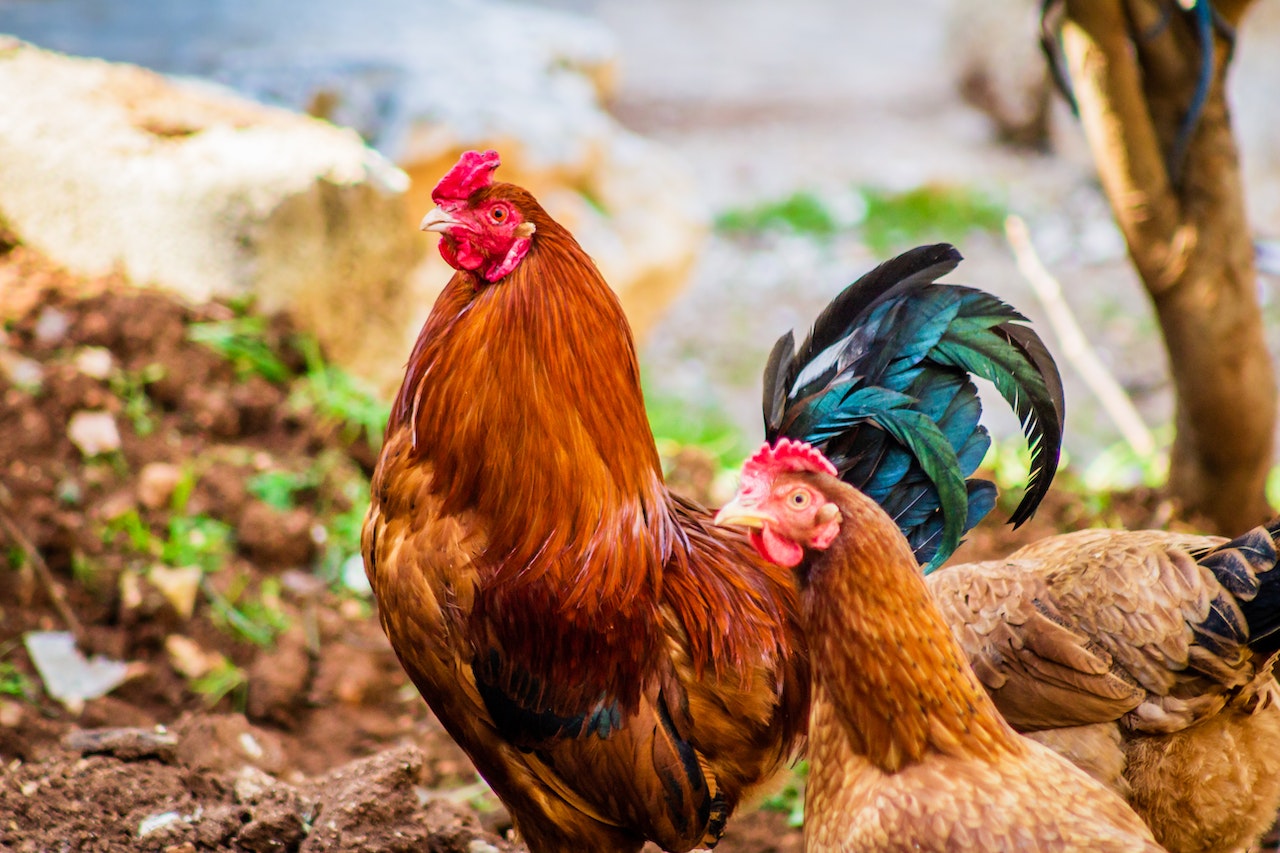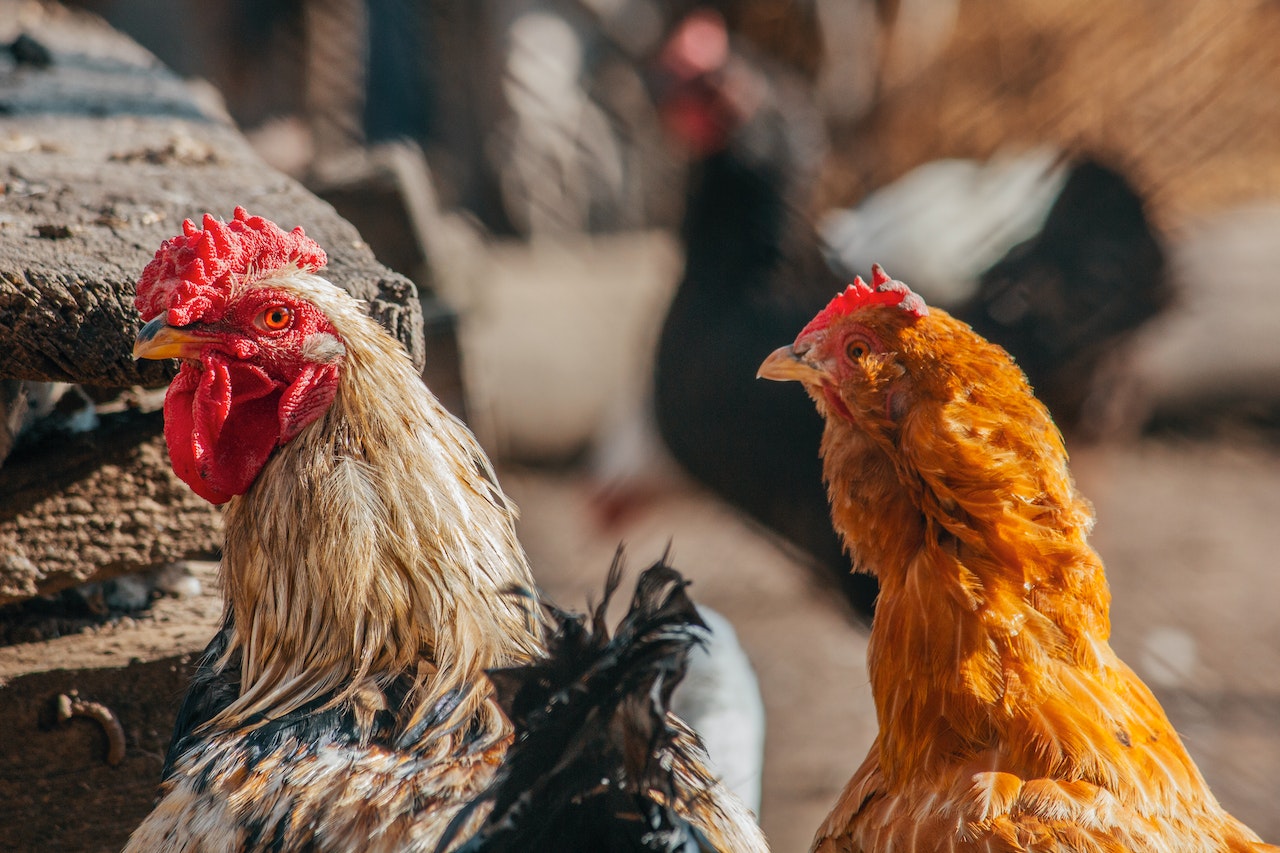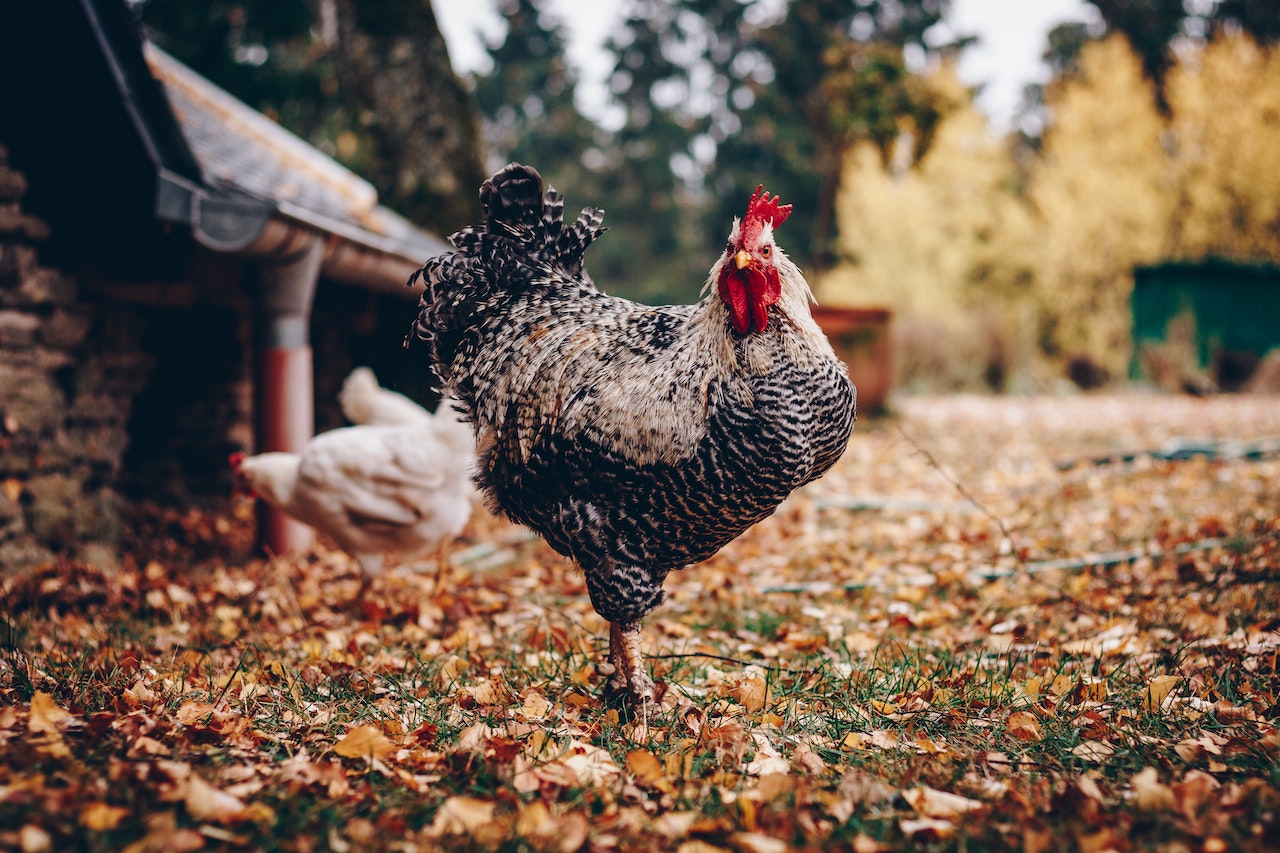
When it comes to the diet of backyard chickens, it's important to provide them with a balanced and nutritious meal. While chickens primarily thrive on a diet of grains, vegetables, and insects, there are certain foods that can be beneficial as occasional treats. One such food that often raises questions is yogurt. In this article, we will explore whether chickens can eat yogurt, the potential health benefits it may offer, its suitability for chicks, the recommended serving sizes, and the best ways to serve yogurt to chickens.
Can Chickens Eat Yogurt?
Yes, chickens can indeed eat yogurt. Yogurt is a dairy product that is made by fermenting milk with live cultures of bacteria. It is a good source of protein, calcium, and probiotics, which are beneficial bacteria that can promote gut health. When considering feeding yogurt to chickens, it's important to keep in mind certain factors such as the type of yogurt, any added ingredients, and moderation in serving size.

Health Benefits of Feeding Yogurt to Chickens:
-
Probiotics and Gut Health: Yogurt contains probiotics that can help maintain a healthy balance of bacteria in the chicken's digestive system. This can promote proper digestion and nutrient absorption, leading to overall improved gut health.
-
Calcium Source: Yogurt is a good source of calcium, which is essential for strong bones and eggshell production in laying hens. Calcium deficiency can lead to brittle bones and shell quality issues, so providing calcium-rich foods like yogurt can be beneficial.
-
Protein Content: Chickens require a good amount of protein in their diet to support healthy growth, feather production, and egg development. Yogurt is a protein-rich food that can contribute to meeting their protein needs.
Can Chickens Eat Unsweetened Yogurt
Chickens can eat plain, unsweetened yogurt in moderation. Plain and Unsweetened: When offering yogurt to chickens, it should be plain and unsweetened. Flavored yogurts, particularly those with added sugars or artificial sweeteners, should be avoided. Chickens do not need the additional sugar or sweeteners, and it can potentially upset their digestive system.
Can Chickens Eat Sweetened Yogurt
It is not recommended to feed chickens sweetened yogurt. Sweetened yogurt typically contains added sugars and flavorings that may not be suitable for chickens' digestive systems. Excessive sugar consumption can lead to health issues in chickens, including obesity and digestive upset.
While small amounts of natural sugars, such as those found in fruits, can be part of a balanced diet for chickens, the high sugar content in sweetened yogurt can be harmful. Chickens have specific dietary requirements, and it is best to focus on providing them with nutritionally balanced feeds and treats that are specifically formulated for poultry.
If you want to offer yogurt as a treat for your chickens, it is important to choose plain, unsweetened yogurt. Plain yogurt provides the nutritional benefits of probiotics, protein, and calcium without the added sugars. Always introduce new foods gradually and in moderation, observing how your chickens respond to them.
Can Chicks Eat Yogurt?
Chicks can eat yogurt, but it's important to introduce it gradually and at the appropriate age. Yogurt can be given to chicks when they are around two to three weeks old and have started consuming solid foods. Before introducing yogurt, ensure that they have been successfully transitioned from their starter feed to a chick grower or developer feed.
How Much Yogurt Can Chickens Consume?
Yogurt should be offered to chickens in moderation. As a treat, it should not exceed 5-10% of their overall diet. Start by offering small amounts, such as a tablespoon or two, and observe how they respond. If they tolerate it well, you can continue to offer it as an occasional treat. It's important to remember that yogurt should not replace their regular feed, as it does not provide all the essential nutrients they need.
Risk Of Feeding Chicken Yogurt
Feeding yogurt to chickens can have both benefits and risks. While yogurt can provide certain health benefits, it is important to be aware of potential risks and consider them before offering it to your chickens. Here are some factors to consider:
- Digestive Sensitivity: Chickens have a delicate digestive system, and some individuals may be more sensitive to dairy products like yogurt. Dairy products contain lactose, which chickens have limited ability to digest. Feeding yogurt to chickens with lactose intolerance or sensitive digestive systems can lead to digestive issues such as diarrhea or upset stomachs.
- Bacterial Contamination: Yogurt is a dairy product and can be susceptible to bacterial contamination, especially if it is not handled, stored, or served properly. Harmful bacteria like Salmonella can be present in raw or improperly stored yogurt, which can potentially lead to infections in chickens. It is crucial to use fresh yogurt from reliable sources and ensure proper hygiene practices when handling and storing yogurt.
- High Sugar Content: Some commercial yogurts contain added sugars or sweeteners, which can be harmful to chickens. High sugar intake can lead to obesity, diabetes, and other health issues in chickens. If you choose to feed yogurt to your chickens, it is advisable to select plain, unsweetened yogurt without any added sugars or artificial additives.
How to Serve Yogurt to Chickens
-
Plain and Unflavored: It's best to offer plain, unflavored yogurt to chickens. Avoid yogurt with added sugars, sweeteners, or artificial flavors. These additives can be harmful to chickens and may cause digestive upset.
-
Room Temperature: Serve yogurt at room temperature or slightly chilled. Cold yogurt straight from the refrigerator may discourage chickens from eating it.
-
Small Portions: Offer yogurt in small portions to prevent wastage and ensure that each chicken has a chance to enjoy it. You can scoop out a spoonful onto a plate or a shallow container and place it in their feeding area.
-
Mix with Other Foods: You can mix yogurt with other chicken-friendly foods, such as chopped fruits, vegetables, or grains, to create a yogurt-based treat. This can add variety to their diet and make it more appealing to them.
Conclusion
Chickens can safely consume yogurt as an occasional treat. It provides them with additional protein, calcium, and beneficial probiotics. However, it's important to offer plain, unflavored yogurt in moderation and as part of a balanced diet. Yogurt should not replace their regular feed, and serving sizes should be appropriate for their age and size. By following these guidelines, you can introduce yogurt as a healthy and enjoyable treat for your flock. Always monitor their response and consult with a poultry veterinarian or specialist for specific dietary recommendations for your chickens.



